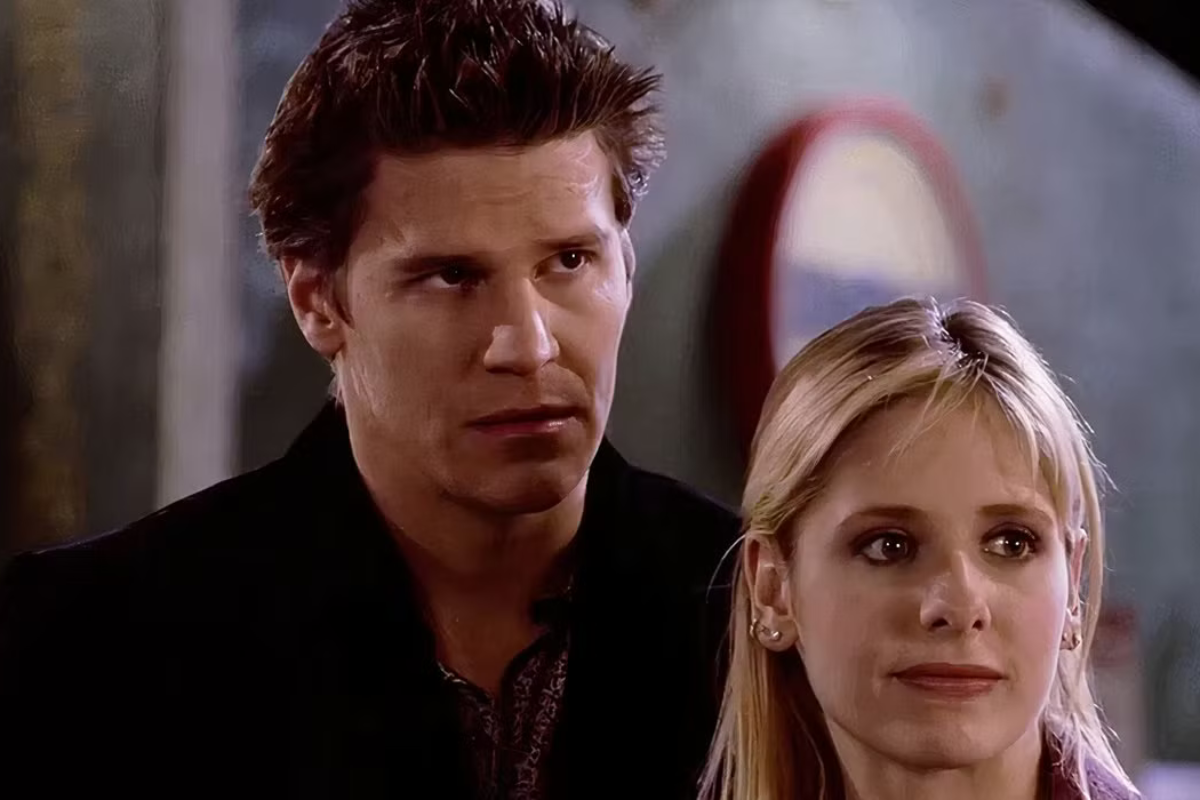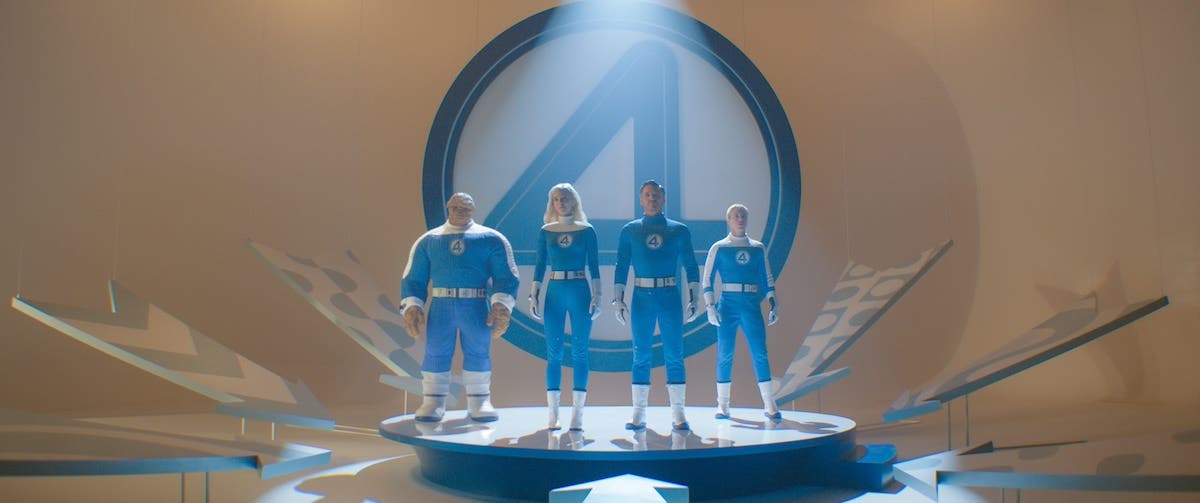Behind the Lines with DR: The Three Ps
“Beware of the three Ps,” said my old man. “What’s that?” I asked, probably eight years old at the time. “Petty People with Power.”
Doug Richardson's first produced feature was the sequel to Die Hard, Die Harder.Visit Doug's site for more Hollywood war stories and information on his popular novels.
Three Ps
My dad used to warn me.
“Beware of the three Ps,” said my old man.
“What’s that?” I asked, probably eight years old at the time.
“Petty People with Power,” he replied.
Who exactly was he describing? Pretty much anybody who would abuse their own position of power. Traffic officers. Lost luggage clerks. Anybody who works at the DMV.
I’ve done my best to heed his advice while also experiencing a few epic fails, such as a night in jail because I chose to run my mouth off to the cop who was harassing my date. We’ve all been there. Backed into a corner or showing righteous indignation in the face of some authority harboring a malignant bully complex.
Well, thank Baby Jesus those rotten three Ps don’t exist in showbiz, where egos are secure and passive-aggressive behavior is relegated to tipping a restaurant valet.
Ok. So I jest. Pettiness is not only rampant in Hollywood, it so ubiquitous it grows like algae in a pee-fueled community pool that’s fresh out of chlorine. Mix that with a business where money is power and vice versa, well, it’s like managing an army of menopausal meter maids.
Follow.
Awhile back, I attached myself to a novel written by an author acquaintance. My agents asked to package the project, hooking a Big Star and her Mighty Morphin’ Manager. I say “morphin’” because the manager was seeking to shoe-horn his position as artist-rep-to-a-star into an on-screen producing credit. Why? Well, other managers were succeeding with the ploy. And it was a way for the stars to get the movie studio to pay their management fees. But I digress.
Days before we were set to auction the project off, another producer, the iconic Billy Behemoth, asked to join in the fun. Why not? The more the merrier, right? Big movie star teamed with big producer practically screamed green light. Everybody was game. And sure enough, studios lined up to bid on our Tiffany-tinged package.
Well, sometimes too much bling can blind. While my producers were utterly gassed by my adaptation of the novel, the studio was way less enthused. It appears that they had an entirely different vision of how the book should’ve been realized.
Quandary? Lord knows that most experienced script jockeys have found themselves in a similar pickle. Producer loves the script. Studio doesn’t. Producer, realizing precisely who it is that powers his Prius, eventually sides with studio and the writer is screwed.
Well, not this time. Both my producers, Billy Behemoth and the Mighty Morphin’ Manager, thought the studio was dead wrong in their assessment of the script and requested that the project be put in turnaround.
Turnaround you ask? What’s that? It’s when the company gives the filmmakers permission to shop the project to another studio. In return, the company gets to recoup whatever monies it has invested. For a more detailed account on turnaround, read my post THE ENEMIES LIST.
To say I was chuffed at the backbone my producers showed is an understatement. While the studio and the lawyers went about arranging the terms of turnaround, conference calls were arranged to discuss our next move. Billy Behemoth wanted to invite a value-added movie director to our happy little party before we went to potential buyers. Plus, he reckoned, holding the project back a month or so might create a little bit of added buzz that might even reinvigorate our original studio.
Time, Billy Behemoth reasoned, was on our side. That and with the summer sun melting half of LalaLand, nobody would really be serious about new business until the Tuesday following Labor Day.
So we all went on holiday. Billy Behemoth departed to some exotic locale. My family and I to our beloved seaside escape in southwest Ireland.
All of us except for that Mighty Morphin’ Manager.
We were just settling in for the night after a few bottles of vino with my wife’s Irish cousins when my cell phone rang.
“What the fuck!” screamed Billy Behemoth. “Did you know about this?”
“Know about what?” I asked.
“So you don’t know?” he shouted.
“Billy,” I said. “I’m out of the country. I don’t know anything. What happened?”
“What happened is Mighty Morphin’ Manager!” Billy spat. “He totally screwed the pooch.”
“Screwed what?”
“Your script is what!”
“What could he do to my script?”
“Mailed it to the town.”
To say I was lost is a syllable or two short of accuracy. I was befuddled and without bearing, still buzzed from bottles of cheap red wine while trying to decipher facts through Billy’s screaming.
“Dumb shit movie star manager who thinks he’s a producer but isn’t a Goddamn producer made a zillion copies of your script, put them in envelopes, and mailed them to every buyer.”
“Mailed them?” I asked. “Not messengered? Like with a stamp?”
“U.S. fucking postal shitferbrains!” Billy continued to rant. “No cover letter. Well, no cover letter that says his fucking international movie star client is attached as lead. Or that I’m his producing partner, for that fucking matter!”
“Look,” I said, still flustered. “Let me get my agents on it. They rep both me and the star.”
It was the Wednesday before Labor Day. Dead in the middle of a week where the business side of movie-dome is pretty much shuttered. Still, I got my agent on the phone. Suffice it to say he was chagrinned to explain the facts of the matter.
That Mighty Morphin’ Manager had, indeed and without explanation, released our precious script to every potential buyer during the worst possible week of the calendar year. This had been done without coordination of the agency or producing partners. There had been no advance calls to recipients, selling them up on the movie package they were about to receive and the need for a quick response considering it was an auction situation. Inside each envelope was an attached cover letter which made zero reference to the movie star being attached or that Billy Behemoth was also producing. The final insult was that the script copies had been mailed via the U.S. postal service instead of hand messengered, the industry practice for nearly everything of the slightest import.
In an industry where perception is often more powerful than truth, the message sent by The Mighty Morphin’ Manager was that our little turnaround project wasn’t worth more than a dog’s sniff.
I asked my agents why? The best they could answer was a collective shrug. The movie star was worth too much coin and nobody was going to broach the rumor that the manager suffered from a burgeoning mental disorder. Investigating Mighty’s monumental brain fart would be potentially dangerous to the company’s bottom line.
Yet all was not lost. It would be easy enough to inform all the buyers that there’d been some kind of secretarial error. Disregard the mailer. Wait for Billy Behemoth’s official submission.
Instead I got this phone call upon my return to the U.S. on the Tuesday following Labor Day:
“Who the fuck does Mighty think he is?” blasted Billy Behemoth from his mobile phone. I could practically hear the Malibu waves crashing along PCH as he navigated his German convertible to his Santa Monica office. “Seriously. What movies has Mighty really produced?”
“Listen,” I said. “Clearly we need to pull back on the reins. Get everybody back on the same page.”
“Zero!” said Billy, answering his own question. “He’s produced nothin’. Me? I’ve made dozens of movies.”
“Nobody disputes that,” I agreed.
“You know how much I make per picture?” Billy asked. “Three and a half-million! That’s just putting my name on it. Three and a half million and I’m supposed to share credit with that douchebag?”
“Everybody knows he’s not a real producer,” I tried to salve.
“Then why’s he on my movie?”
I didn’t have to explain. But I still named the movie star. If anybody should’ve understood the food chain and geophysics of the Hollywood A-List it was Billy Behemoth. Movie stars get what they want. And their managers are often the biggest abusers of that power.
“I don’t need this shit in my life,” said Billy. “And I don’t have to share screen credit with fuck-wits who don’t bring anything to the game.”
“So we back off,” I said. “Reorganize. Come up with a new battle plan.”
“Fuck him.”
I suggested we all get in a room. I recommended that we all keep our minds on the prize: a movie with a green light. Who knows? I might’ve even suggested something as lame as an old adage like a rising tide lifts all boats. I can’t recall exactly how the call ended. I do though remember how the story sums up.
Instead of cooler heads prevailing, a petty battle of bruised egos broke out between Billy and the Mighty Morphin’ Manager. With my script as the unlucky pawn. Afraid things could worsen, leaving my script something nobody wanted to touch for fear of litigation, I recommended to the author that he not renew the option, forcing both warring parties to their respective corners. The author heeded my advice, pulled the rights, and the hot air was finally spilled from the balloon.
Since that day, the author and I have hoped we could resurrect the project. Only the biz has changed. The movie star is no longer bankable. His Mighty Morphin’ Manager retired from showbiz. And Billy Behemoth has been reduced to the role of four-hundred-pound gorilla. He’s still a force. Though of late he like everybody else in the game has learned to take a haircut when it comes to fees.
And me? I’m still trying to keep wary of those three Ps.
- More articles by Doug Richardson
- Jeanne's Screenwriting Tips: Selling Your Screenplay
- Script Angel: Developing Screenwriting Habits for Career Success
Corey Mandell gives incredible advice in his webinar,
Writing the Spec Script that Launches Your Career
Doug Richardson cut his teeth writing movies like Die Hard, Die Harder, Bad Boys and Hostage. But scratch the surface and discover he thinks there’s a killer inside all of us. His Lucky Dey books exist between the gutter and the glitter of a morally suspect landscape he calls Luckyland—aka Los Angeles—the city of Doug’s birth and where he lives with his wife, two children, three big mutts, and the dead body he’s still semi-convinced is buried in his San Fernando Valley back yard. Follow Doug on Twitter @byDougRich.







